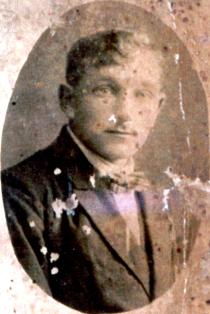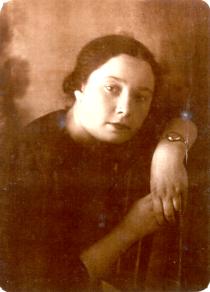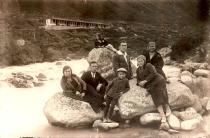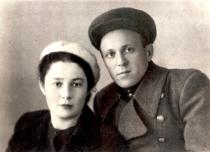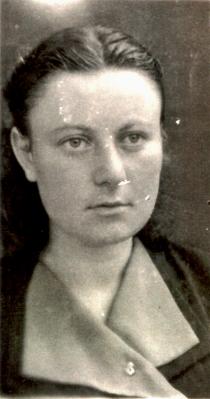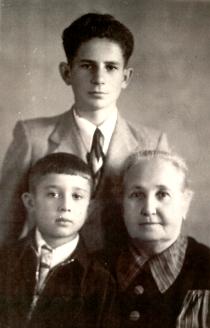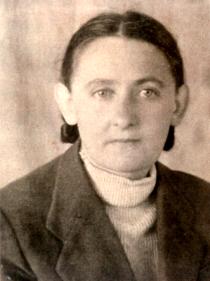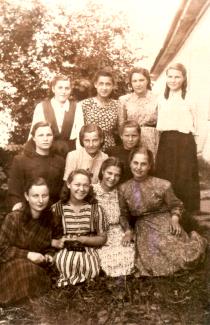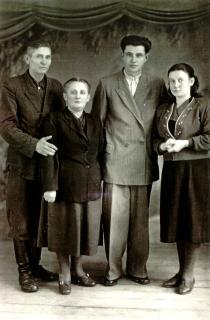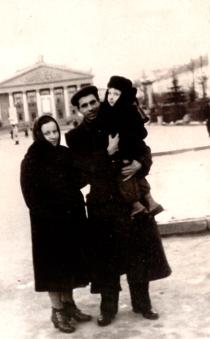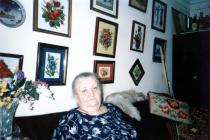This is my maternal grandfather Ghedali Richter photographed in Litin in the early 1900s to show the photo to his fiancee, my future grandmother.
My maternal grandfather Ghedali Richter and grandmother Hana came from Litin. They were born in the late 1880s. I have no information about their families either. All I know is that grandmother Hana had two older brothers who moved to America in 1912 to avoid military service in the tsarist army. I don't remember their names. My mother corresponded with them before the middle of the 1930s until corresponding with relatives abroad became unsafe. Grandfather Ghedali supplied fruit and vegetables for a tinned food factory before the revolution and during NEP. He owned a supply company that was nationalized after the NEP. He continued working there. They had stocks of pears, apples and nuts in the basement of their house that saved them from hunger at the trying times. These stocks rescued them during famine in 1932-33. Grandfather Ghedali and his family lived in a barrack-type house with another Jewish family. They lighted their house with candles or kerosene lamps and had a stove heating. My grandfather received this apartment from the factory where he worked and my grandparents lived there until the end of 1937. My mother's family was not wealthy. Grandfather earned well, but grandmother Hana had stomach problems. They spent a lot of money on doctors and medications. Probably due to her illness they only had two children: my mother and her younger brother Aron, born in 1915.
My mother's parents were religious: they observed kashrut and Sabbath. My grandfather wore a kippah at home and a wide-brimmed hat to go out. My grandmother also wore a kerchief or a lace shawl. My grandfather and grandmother went to synagogue on Saturday and my mother stayed at home to set a festive dinner. They observed all Jewish holidays and fasted at Yom Kippur. They did a major cleanup of the house before Pesach and used special kosher crockery that they kept in the attic during the year. They bought matzah at the synagogue; in the 1930s they made it at home.

